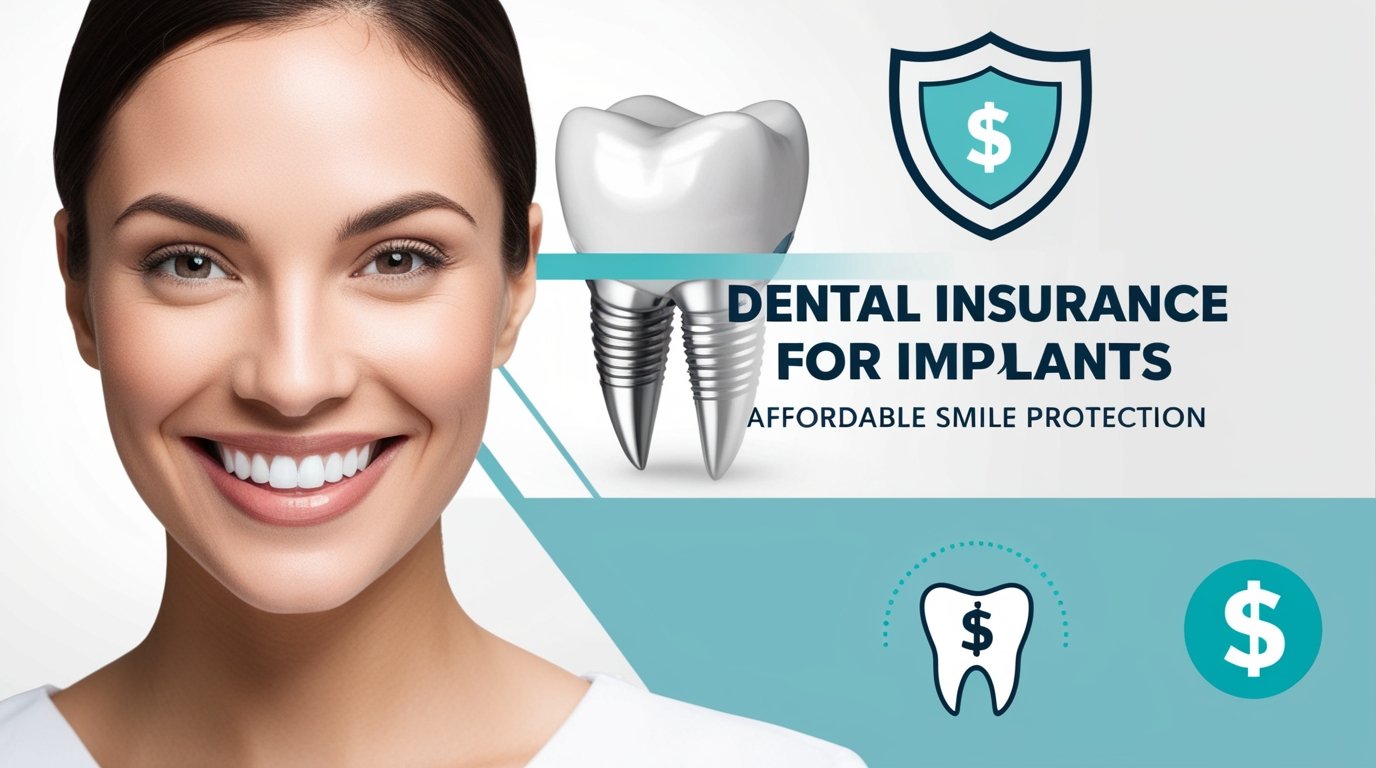Dental Insurance for Implants: A Complete 2025 Guide
Dental implants are one of the most effective solutions for missing teeth, offering durability, comfort, and a natural appearance. However, they can also be expensive, with costs ranging from $3,000 to $6,000 per tooth in the United States. This is why dental insurance for implants is essential for anyone considering this procedure. Having the right coverage can significantly reduce out-of-pocket expenses and make high-quality dental care more accessible.
In this guide, we’ll explain what dental insurance for implants covers, the types of plans available, and how to find the best option for your needs.
Why Dental Insurance for Implants Matters
Dental implants aren’t just a cosmetic choice—they improve oral health, prevent bone loss, and restore proper chewing function. But without insurance, the costs can be overwhelming. Choosing dental insurance for implants helps by:
- Lowering upfront costs for surgical and restorative procedures.
- Covering related treatments like bone grafts or extractions.
- Making implants more affordable through annual maximums or discounts.
🔗 Learn more about dental insurance plans at Delta Dental
What Does Dental Insurance for Implants Cover?
Coverage varies by plan, but here are the most common benefits:
- Implant Surgery: Many policies cover part of the surgical placement of the implant post.
- Abutment & Crown: Insurance often helps cover the cost of the prosthetic tooth attached to the implant.
- Bone Grafting & X-rays: Some plans include preparatory treatments like bone grafting or diagnostic imaging.
- Annual Maximums: Most policies have yearly coverage limits, typically between $1,000–$2,500.
🔗 Explore Guardian Dental Insurance Plans
Types of Dental Insurance Plans for Implants
- PPO (Preferred Provider Organization) Plans
Offers flexibility to see in-network or out-of-network dentists. These are popular for dental insurance for implants because of broader coverage. - HMO (Health Maintenance Organization) Plans
Usually lower in cost, but you must choose from a limited network of dentists. Implant coverage may be limited. - Discount Dental Plans
Not true insurance, but they provide discounted rates on implant procedures at participating providers.
🔗 Careington Dental Savings Plans - Employer-Sponsored Plans
Some employers offer comprehensive dental coverage that includes implants. Always check your benefits package.
How Much Does Dental Insurance for Implants Cost?
The cost depends on the provider and level of coverage, but here are average monthly premiums:
- PPO Dental Plans: $30–$60/month
- HMO Dental Plans: $20–$40/month
- Discount Plans: $10–$20/month
Since implants can cost thousands of dollars per tooth, investing in dental insurance for implants often pays for itself with just one major procedure.
Best Insurance Providers for Dental Implants
If you’re considering implants, these providers are well-regarded for covering them:
- 🔗 Delta Dental – One of the largest networks with comprehensive implant coverage.
- 🔗 Guardian Direct – Flexible plans with implant benefits.
- 🔗 Cigna Dental – Wide coverage options, including restorative procedures.
- 🔗 Humana Dental – Offers plans designed for implants and oral surgeries.
- 🔗 MetLife Dental – Strong coverage and nationwide dentist network.
Factors to Consider When Choosing a Plan
When selecting dental insurance for implants, keep these in mind:
- Waiting Periods: Some plans have waiting periods of 6–12 months before implant coverage kicks in.
- Annual Maximums: Check if the yearly maximum is high enough to offset implant costs.
- Coverage Limits: Some insurers limit coverage to one implant per year.
- Dentist Network: Ensure your preferred oral surgeon or dentist is in-network.
- Exclusions: Read the fine print—some policies exclude implants entirely.
Alternatives if Insurance Doesn’t Cover Implants
If your plan doesn’t include implant coverage, consider these alternatives:
- Dental Discount Plans: Save 20–60% on implant procedures.
- Health Savings Accounts (HSA) or Flexible Spending Accounts (FSA): Use pre-tax dollars for implant costs.
- Dental Schools: Local dental schools often provide implant procedures at lower costs.
- Financing Options: Many dental clinics offer in-house financing or third-party credit options.
Steps to Get Dental Insurance for Implants
- Compare providers and their implant coverage.
- Check eligibility, waiting periods, and exclusions.
- Request quotes from at least three insurers.
- Review your dental history and plan for future needs.
- Enroll and schedule your consultation with an in-network provider.
Final Thoughts
Dental implants are a life-changing solution for restoring your smile and oral health, but the high costs can be a challenge. With the right dental insurance for implants, you can make this procedure affordable while enjoying peace of mind that your investment is protected.
Before choosing a plan, carefully compare benefits, costs, and provider networks. The best policy is one that balances affordability with comprehensive implant coverage, ensuring you get the care you need without financial strain.






One comment on “Dental Insurance for Implants: Affordable Coverage Options in 2025”